|
Introduction
- Registered
design protects only the shape, visual appearance, aesthetic appeal or ornamental characteristics of a new design. Protection does not
extend to any functional features, which are within the reign of
technical patent for invention. Nor does it cover any internal part
not visible during normal use of the designed article or the interconnection
between parts.
- In order to
obtain a valid registration, the design must also be novel, possess
individual character and must be industrially applied to manufacture
articles. The validity of a design can be easily challenged if its
novel features are not startling, or it is largely a commonplace design,
or a mere variation in craft of its trade.
- New design
must be kept confidential and should only be disclosed to others
(eg. prototype manufacturer) under a contract containing a confidentiality
clause. A new design will lose its novelty in Hong Kong if it has
been published or exposed to the public anywhere in the world prior
to the filing of its application or Convention priority date.
- Timing of application
should be planned. The application should neither be made too early
that some details of the design are subsequently revised or improved
upon, nor too late as to be after the marketing of the designed articles.
- Upon filing,
the design can start to be marketed. However, after such exposure
to the public or after the publication of any of the design applications,
most further filing in additional foreign countries must be made within
6 months of the first application's filing date with a claim for Paris
Convention or WTO priority, and requiring additional fees in both
Hong Kong and the foreign countries. The alternative is to organize
the applications to be filed on the same date.
- The protection
given by registered design is a monopoly right that is stronger than
copyright. The protection extends against both deliberate copying
and independent development of a closely similar design. However,
this stronger right come at a price of the higher requirement of novelty,
which is challengeable via court action even after registration and the issuance of
the certificate.
- Foreign company or individual can apply to register their designs in Hong Kong without nationality restriction or residency requirement.
Benefits
of Reg Design
- Registered
design certificate is the best document for showing that you have
claimed the design.
- Registered
design certificate is the most acceptable title document for making
complaint to the Legal Adviser of TDC Fairs about infringement by
another exhibitor.
- Showing
registered design certificate can be a sale technique for making potential
customers trust your designed products.
- Registration
enables lawful use of the notation "Reg", "Design
Registered", or "Registered Design No. …"
on the product and its packaging.
- There
is no need to prove knowledge when using registered design against
distributors or retailers.
- Registered
design gives you additional rights over and above the copyright of
your design.
- Registration
enhances the proof of copyright over your design.
- Registered
design is a corporate asset which is essential when valuing your company
in M&A or IPO situations.
- Registration
in an important city and trading centre like Hong Kong is helpful
for export or global marketing plans.
Fees
The fee is HK$3,200
for 1 article.
The fee is all-inclusive. Neither the Registry nor us charge any fee on registration and issuance of the design certificate. Nor do we charge any miscellaneous disbursement.
If there is more than 1 article (eg. a series of watches), each additional article is only HK$2,400 all-inclusive.
For break-down of the official fees and our fee, please refer to our Fee Schedule .
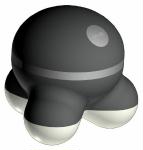    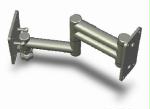 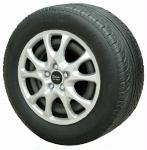  
Timeframe
The time
needed from application to registration is around 2 to 6 months :-
| Filing
receipt and Application number |
1
day |
| Minimum requirement examination |
within 2 weeks |
| Formality
examination |
1 to 5 months |
| Publication,
registration and issuance of design certificate |
2
weeks |
The examiner
will only perform a "formality" examination, and he or she
usually will not make any search for prior registered designs in Hong
Kong. Hence, the registration and issuance of design certificate is
not in anyway a confirmation on the question of novelty.
Upon registration,
a Hong Kong registered design is initially valid for 5 years
and is renewable for 4 periods of 5 years each up to the maximum protection
of 25 years.
For details on renewing registered design, please refer to HK Design Renewal .
Hong Kong registered design certificate samples :
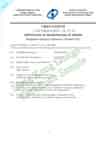 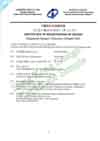 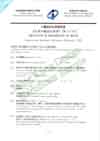
Design
Search
Anyone from anywhere can
use the free online search website https://esearch.ipd.gov.hk
of the Intellectual Property Department of Hong Kong Government to
find out whether any similar registered design exists in the register.
Since the definition
of novelty is broad and the examination practice does not involve
comparison with prior registered designs, pre-application search is
not necessary.
Search of prior registered
designs in the Hong Kong are usually for other purposes, such as ascertaining
whether competitors or opposite party of the client has registered
a similar design in Hong Kong.
Convention
Priority
Within six months
of the first filing of the design in a WTO member country or Paris
Convention country, a priority can be claimed in the Hong Kong application.
This will synchronize the Hong Kong filing date with that of the first
filing for the purpose of determining the novelty of the design.
The practical
result is that any disclosure of the design or marketing of the designed
product after the first filing but within six months of that first
filing does not jeopardize the Hong Kong design application.
Representation
of Design
The most important
disclosure of the design applied for rests with its representation,
which consists of either drawings and/or photographs.
| Drawings
and/or photographs should be : |
| |
|
| (a) |
usually 7
Views - front, rear, left, right, top, bottom, and 3-dimensional
front perspective. |
| |
|
| (b) |
There
is no limitation on the number of photographs or drawings
for inclusion in the application. The pertinent consideration
is how
to use the photographs or drawings to fully display and disclose
the novel parts and features of the design. When registered, the
submitted photographs or drawings will be attached to the back
of the design certificate. |
| |
|
| (c) |
Any
aesthetic "interior" of the designed article visible
during
normal use of the article, should also be photographed or drawn
for inclusion in the application. Sectional view which clearly
brings out the design is permissible, but sectional view showing
functional features or interior structure not being part of the
aesthetic design is usually not allowed. |
| |
|
| (d) |
For
drawings, surface shading or texturing can be used to bring
out the contour and the shape of the design. |
Details
Required
| 1. |
Full
name and address of the applicant. |
| |
|
| 2. |
If the applicant
is not the designer, a statement as to the
applicant's ownership of the design. For examples : "Employer
of
designer"; "By Assignment"; or "By Commissioning the design". |
| |
|
| 3. |
Name
of the designed article in English and Chinese. |
| |
|
| 4. |
Representation
of the design in the form of drawings or
photographs (in jpg file format sent by e-mail to us). |
| |
|
| 5. |
Certified
copy of the first design application within the last 6
months (if any filed in a Paris Convention country or WTO
member country). |
| |
|

Design Info / Resources
Design visual rendering 
Product Designers gallery
Copyright
Hong Kong Copyright
China Copyright
USA Copyright
                 
All
Rights Reserved ©
2003-26 HKT&DPA Ltd. · ©
2003-26 HKT&DPA Ltd. ·  Terms
of Use Terms
of Use  ·
Privacy ·
Privacy
| |

